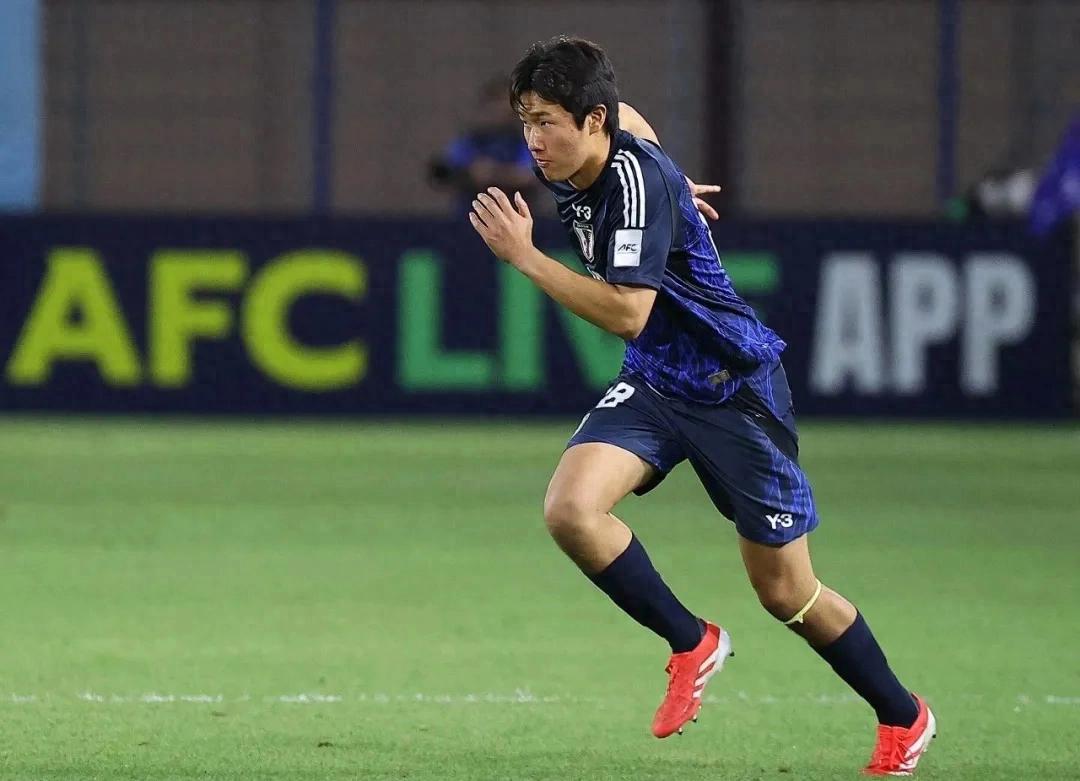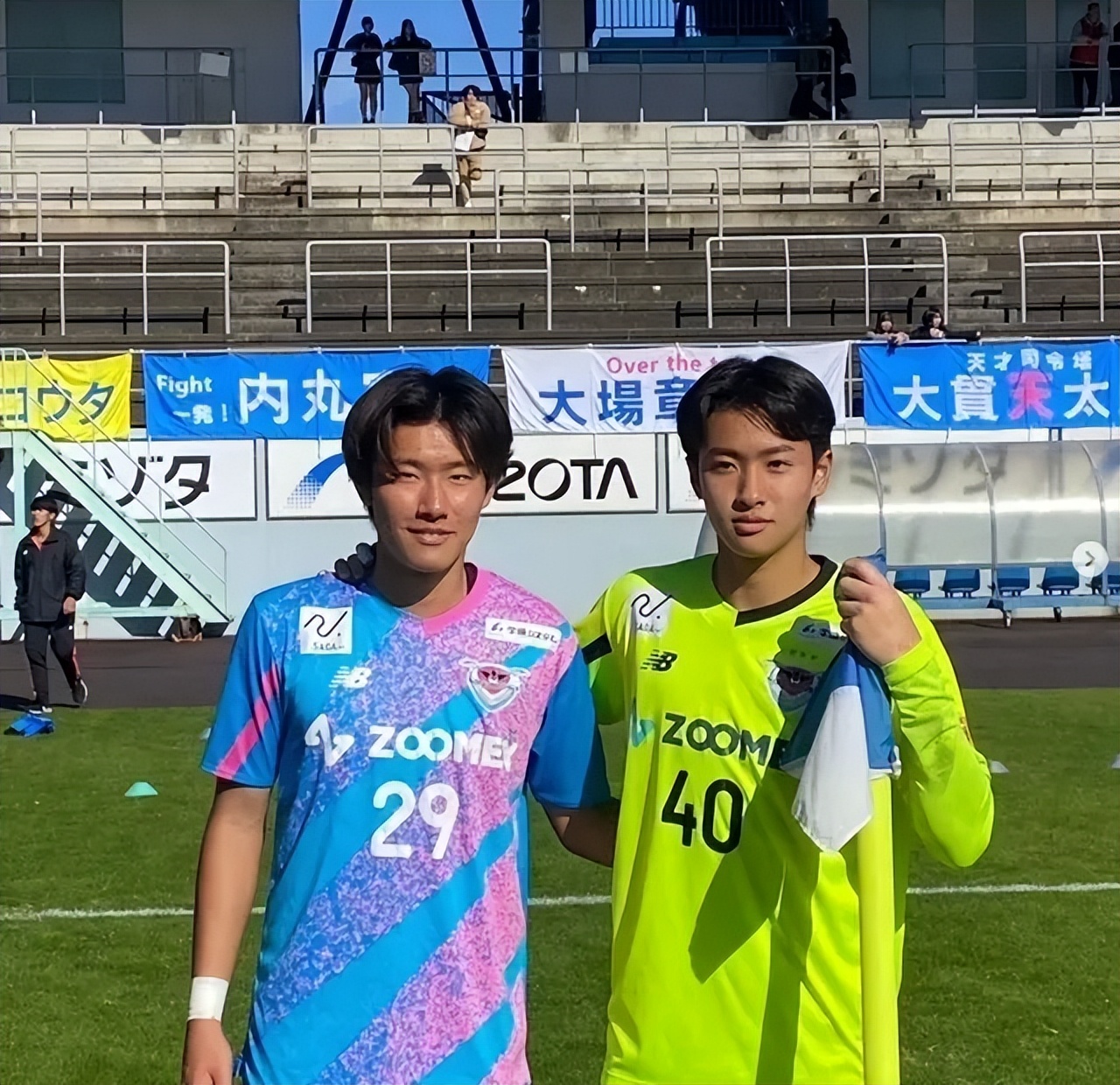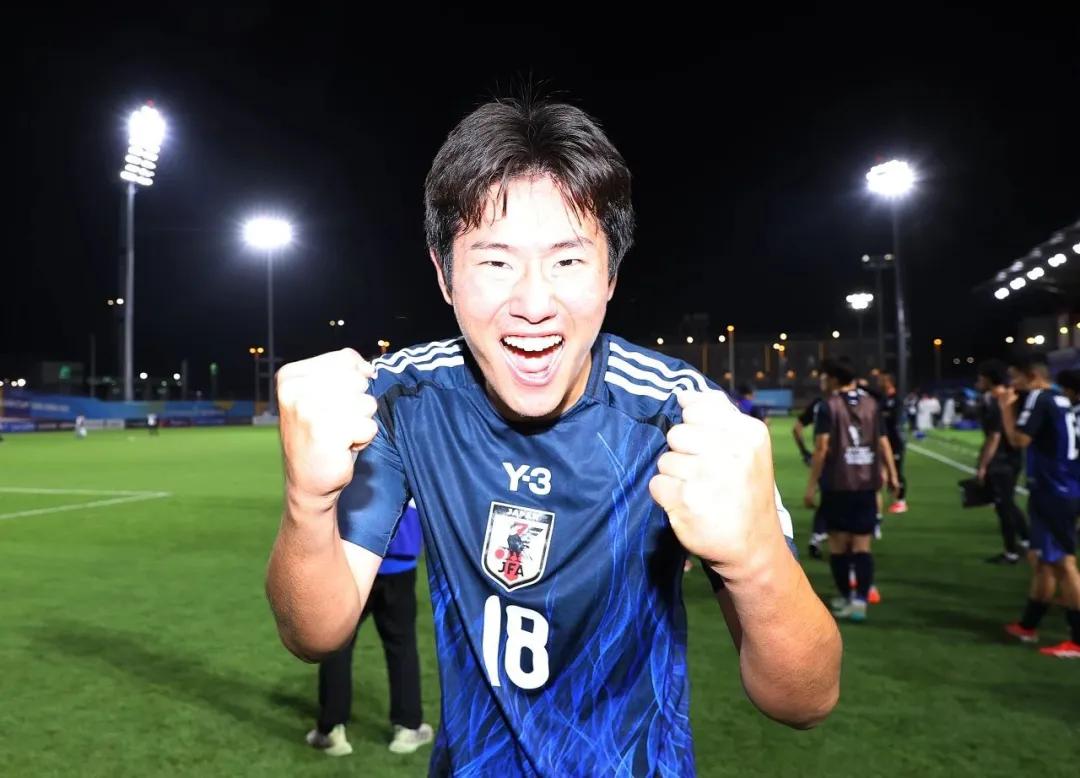The 16-year-old Korean-Japanese mixed-race striker sparks controversy, and South Korea wants to "snatch" the talented shooter from Japan?

The reporter reported coldly The U17 Asian Cup Japan and South Korea teams were eliminated by the Saudi Arabian team in penalty shootouts, but the South Korean media and fans are more concerned not about the Korean team's performance better than Japan, but the Japanese team's Korean-Japanese mixed-race striker Gu Dadi. The fact that this South Korean-trained football teenager was poached by Japan has sparked heated discussions in South Korean public opinion about the naturalization of mixed-race players, which may advance the naturalization of the Korean men's football team by a big step.
Gu Dadi, who is only 16 years old, is the "second generation star" of Korean and Japanese acting, and his father is 56-year-old former well-known Korean singer and actor Kim Jung-min (real name Kim Jung-so), who was active in the 90s of the 20th century, has released many albums and starred in many Korean dramas. The 45-year-old mother is a Japanese national beautiful girl idol factory Good Morning Family (Hello! Project) member Mika Chixia (real name Rumiko Tani), but her acting career was not successful, and she retired after only releasing 3 singles. The two married in 2006 and have three sons, the second son of Gu Dadi (South Korea's famous Kim Dadi), who represented Japan in the U17 Asian Cup.
Gu Dae was born in South Korea, and when he was a student at Sinjeong Elementary School in Seoul, he already attracted the attention of scouts for his outstanding talent, and then was admitted to the prestigious Gosan Middle School and entered the FC Seoul echelon. However, in order to pursue his football ideals, his mother took him and his one-year-old brother Gu Taeyang (Korean name Kim Taeyang) to move to Japan and join the Tosu Sagan echelon in the J1 League. Goalkeeper Gu Taiyang and his younger brother Gu Dadi grew up in South Korea, and their language, culture and football training are all in South Korea, and even their Japanese mothers communicate with their families in Korean.

To the dissatisfaction of the Korean media and fans, when the two Gu Dadi brothers were poached by a Japanese club two years ago, they could only say "thank you" in Japanese. But now Gu Dadi has represented the Japanese U17 national junior team, and even almost faced South Korea in the U17 Asian Cup. At the age of 15, Gu Dadi, who is 1.84 meters tall and weighs 72 kilograms, is the Polish center Lewandowski who plays for Barcelona. Last year, he was selected for Japan's U17 national junior team, and became famous in his senior game against Nepal in the qualifiers, scoring seven goals in three qualifying games.
Tani Daichi is a power center that is much needed in Japanese football, with average speed but first-class ball control and shooting skills, and strong confrontation and header ability. In February this year, as a representative of the Japanese Football Association's "Adidas Dream Road" youth player training program, he went to the Mexican giant León University Tigers for a short-term study. Gu Dadi was very impressed by this short "stay abroad", and his physical fitness in Mexico was further improved. In the subsequent U17 Asian Cup quarterfinals against Saudi Arabia, it was Tani Daichi who equalized for the Japanese team and dragged the game into extra time. Unfortunately, the Japanese team lost the penalty shootout in the end and missed the semi-finals.
After Gu Dadi sparked heated discussions on South Korean social media platforms, his father Kim Jong-min revealed in an interview with "Chosun Ilbo" that his son holds passports from both Japan and South Korea, although he is now playing for the Japanese U17 national junior team, it does not mean that the future will not change. Japan stipulates that before the age of 22, and in South Korea, you must choose your nationality by March 31 of the year in which you are 20 years old. South Korean fans believe that the Korean Football Association should try to "reclaim" talented players, but the issue of adult men in South Korea having to serve in the military is the biggest obstacle to Gu Dae's naturalization of South Korea.

Kim Jong-min said that it is still unknown which national team Gu Dadi will choose to play for Japan and South Korea in the future. He suggested that it was best for his son to choose a national team where he could fully display his talents and get more opportunities. When Japan's Football Digest interviewed Tani Daichi last year, his answer was that he leaned towards "playing for a stronger Japanese team". His eldest brother, Taiyo Tani, plays for the Tosu Sagan U18 team and aims to be selected for the U20 Japan national youth team. However, in the goalkeeper position, Gu Taiyang has fierce competition with many mixed-race goalkeepers, and his future is not as good as his second brother.
South Korea's "Jingxiang Sports" believes that Gu Dadi's play for the Japanese team has sounded the alarm bell of Korean football. South Korean football should start focusing on finding and attracting high-quality mixed-race players to improve the strength of the Korean team. Unlike Japanese football, which is in the process of selecting mixed-race players in large numbers, there are not many mixed-race naturalized players available in Korean football. Previously, the South Korean women's football team naturalized 16-year-old mixed-race striker Cathy Fell from the United States, which was a precedent.
The German-Korean mixed-race midfielder Castrop, whom South Korean team coach Hong Myung-bok personally inspected, has entered the vision of the Korean Football Association as early as when Klinsmann was coaching, but Klinsmann has been out of class before he has promoted the completion of naturalization. The 22-year-old Katrop plays for Nuremberg in the Bundesliga and is worth 3 million euros and is a priority naturalization target for the Korean Football Association. And because of the "stimulus" brought by Gu Dadi, naturalizing more mixed-race players has become the consensus of the Korean Football Association.



Wonderfulshortvideo
Things you really love to see


When you use your girlfriends shower 🚿 @Emily Bourne @LUSH


Neymar highlights neymar edit neymar lamine yamal celebration


Arsenal 1-0 chelsea havertz goal


Ahead of his 100th cap, Sir Keir Starmer had this message for Maro Itoje…


yamal goal yamal instagram yamal dribble barcelona 2-1 albacete yamal highlights yamal edit


casemiro goal casemiro assist casemiro 6 7 celebration








 Links
Links
 Contact
Contact
 App
App


